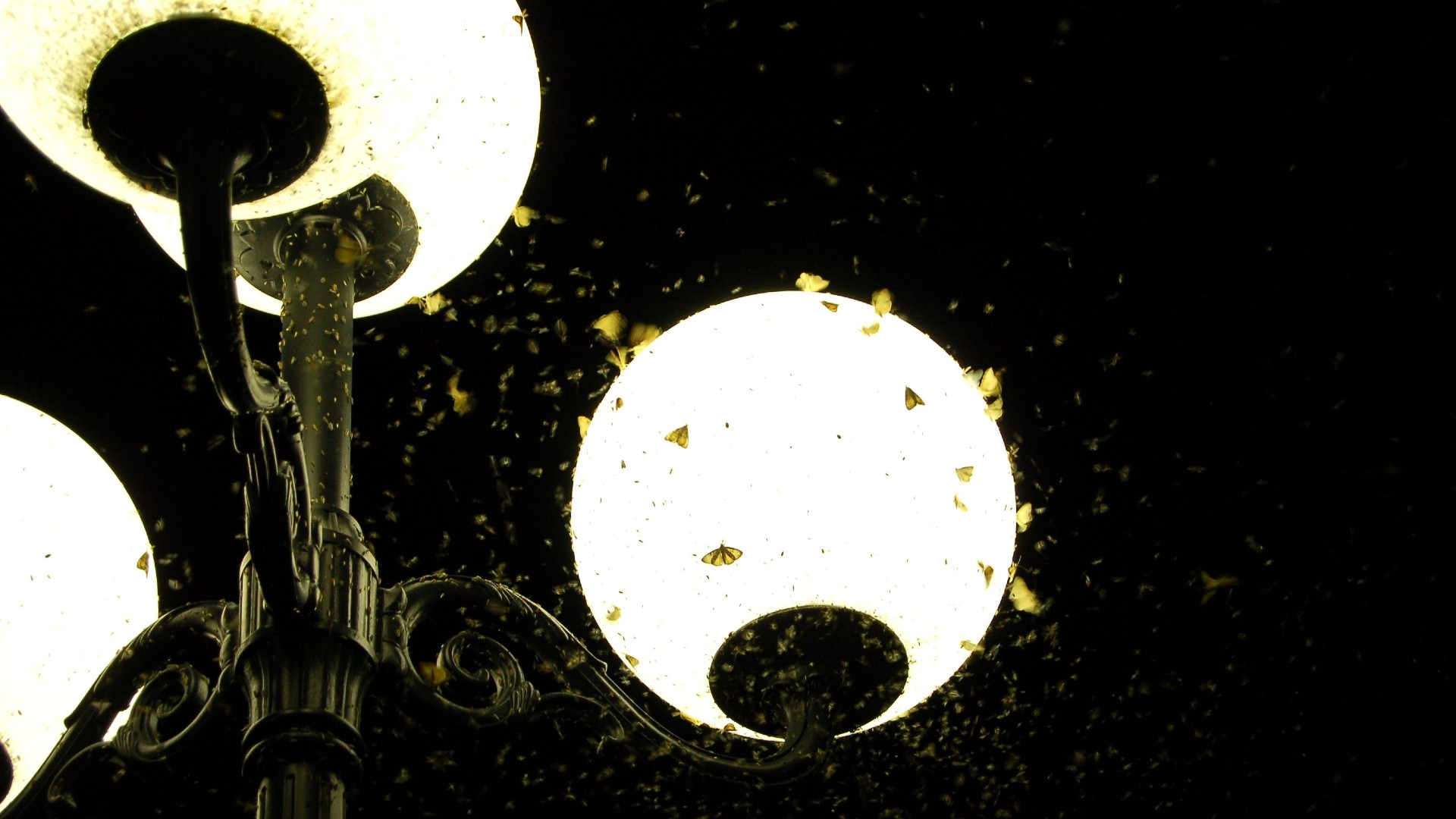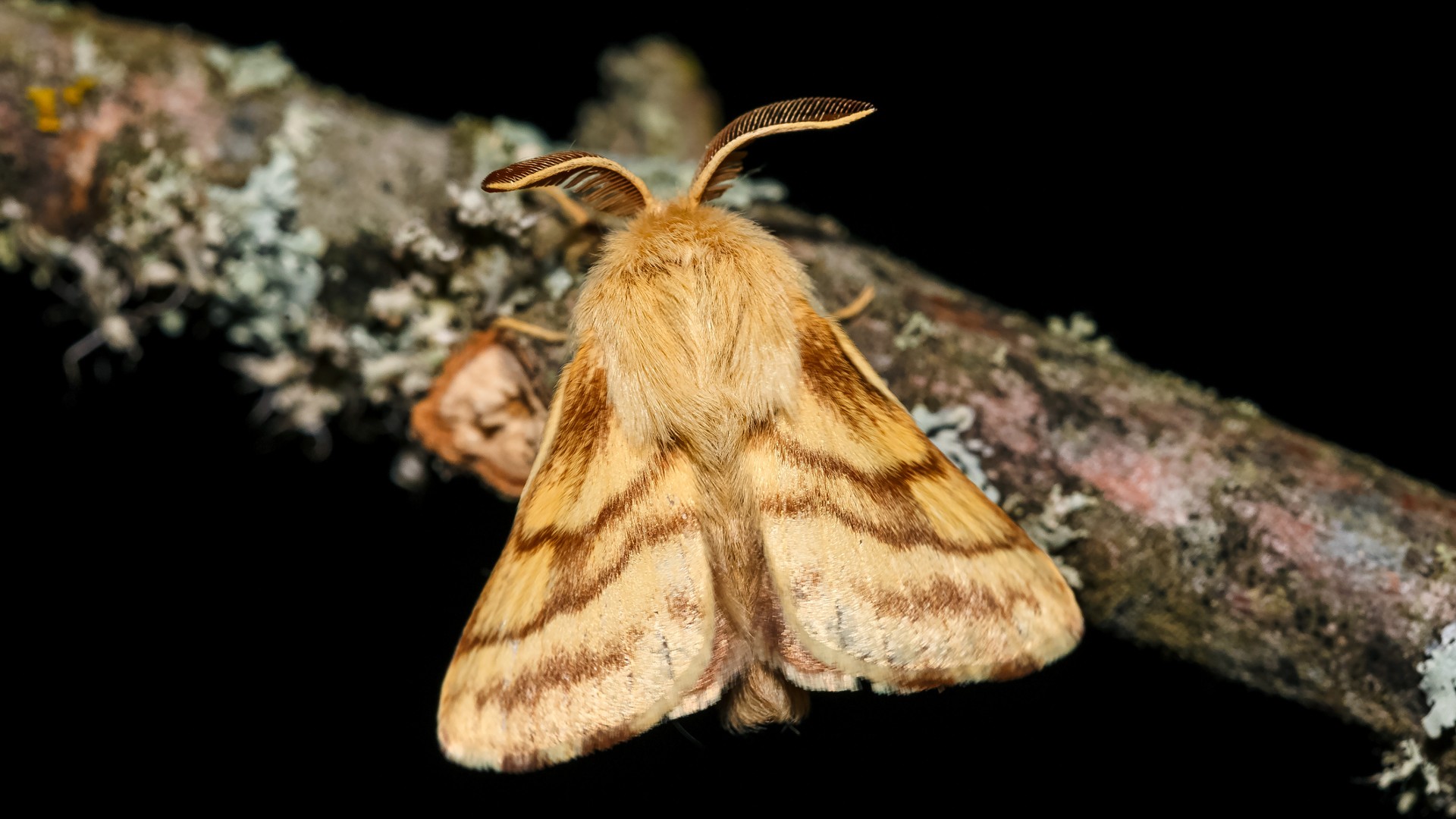
The classic summer cookout comes with chips, drinks and then, after the sun goes down, swarms of insects flitting around porch lights. But flying around artificial lights can have deadly consequences for critters such as moths, gnats and mosquitos; they can get trapped under lampshades and exposed to predators such as beetles, spiders, bats and birds.
This "stupid circling" can even distract insects from goals such as eating, mating and reproducing, said Avalon Owens, a fellow at Harvard University. And artificial lights may be contributing to shrinking insect populations worldwide. So, given the risks, why are insects attracted to artificial lights?
Theories abound. Perhaps moths use the moon for navigation, and lights look like the moon. Maybe insects are trying to escape toward the light — or trying to find the dark. Due to an optical illusion called mach bands, Owens said, "the edge of a lit area will appear darker than the rest of the darkness."
In 1965, one researcher hypothesized that lights might somehow mimic mating pheromones. "That was a wild theory!" said Yash Sondhi, a researcher at the University of Florida who studies moths and sensory systems. "But at that point, all the theories had no evidence," he told Live Science.
Related: Why are flies so hard to swat?
On one level, it appears that insects fly to artificial lights because older evolutionary responses are being hijacked. "For the vast majority of evolutionary history," Owens said, "the night has been almost entirely dark."
Specific hypotheses are difficult to test because insects in flight are hard to observe. New technologies may finally bring better answers. In a 2023 preprint on bioRxiv that has not yet been peer-reviewed, Sondhi, along with Samuel Fabian at Imperial College London and other researchers, filmed moths, dragonflies and other insects with a high-speed camera. They noticed something unexpected: The moths and dragonflies kept their backs to the light as much as possible.
Based on these observations, the newest theory is that some insects fly to light as a way to orient themselves: Usually, light means up, and dark means down. "It's hard for them to use gravity to tell where their body is, because they're just sort of swimming through the air," said Owens, who was not involved with the new research. And with artificial lights, "all of a sudden, the lit half of the universe is not where you'd expect it to be."

Sondhi and colleagues' experiment may explain why insects stay near lights once they get there but not how some insects find lights over long distances or why some get stuck and others don't.
Owens pointed out that dragonflies kept their backs to the light in the experiment but are not usually found circling lights in the field. Moths are. For moths, she said, "There's still this larger question of why they are there in the first place." She wants to test the idea that moths use the moon as a compass at the landscape scale, even though she said that theory is out of favor at close range.
Soon, that may be possible, thanks to more sensitive cameras and analysis techniques. "The whole field is finally getting these tools we can use to explore these questions," Owens said.
In the meantime, Sondhi's findings may support the idea that "up lighting" hurts insects and should be avoided. "If you put the light on the floor facing up, they'll actually flip upside down and crash," Owens said. "We've never really noticed that."
"Reduce lights, and don't point them up," Sondhi agreed. He also recommended using lights that are more red than blue, given how insects see, and turning off outdoor lights whenever possible. If "you turn it off while it's still dark, many of them will recover and fly off," Sondhi said.
As one light-reducing strategy, Owens suggested finishing summer meals in the dark. "Watch the sunset, because the sun sets at the same speed that your eyes adjust," she said. "You're going to see really well." Plus, she added, "If your yard is dark, fewer mosquitoes are likely to find their way there."







